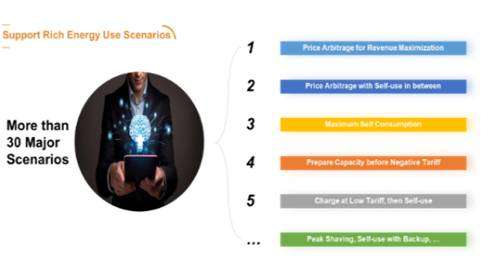Officials say company will increase renewable energy, Thar coal-based production
KARACHI: Officials of K-Electric (KE), which supplies electricity to Karachi and its adjoining areas, have given assurances to consumers that their monthly power bills will remain stable around current levels even if inflation spikes unpredictably in the coming years.
The company has devised a business strategy to increase the share of low-cost renewable energy to 28%, add cheaper Thar coal-based production and cut reliance on expensive imported sources till 2030.
This news may provide some relief to consumers after the previous Pakistan Democratic Movement (PDM) government jacked up base tariff up to Rs7.5 per unit for end-consumers across the country with effect from July 1, 2023.
On the flip side, KE consumers will continue to bear a significant cost of theft and line losses around 15% of their bills as efforts to reduce leakages to nominal levels are believed to take years.
KE officials said the company may be renamed Kinetic Energy as it was serving areas outside of Karachi as well.
They revealed that the company, in its seven-year business plan submitted to the National Electric Power Regulatory Authority (Nepra) in December 2022, proposed to slash power production through imported fuels to 54% by 2030 compared to the current 91% as they were a leading cause of high bills.
At the same time, KE has submitted a plan to increase the share of renewable energy to 28% by 2030 compared to 3% at present. Besides, the share of electricity produced with the help of local fuel sources like Thar coal will be raised to 21% by 2030 compared to current 3%.
“The good news is that the monthly cost of power for KE consumers will remain at current levels (in rupee terms) in the coming years. The projection is being made keeping in view the anticipated hike in inflation over the years (2023-30),” an official said while talking to a group of journalists on condition of anonymity.
He pointed out that the consumers usually faced a hike in power price due to fuel cost adjustment (FCA) in their monthly bills. “FCA is in our control. We can reduce it through inducting low-cost power generation projects and phasing out the expensive ones being run on imported thermal fuels.”
The company has submitted a plan for setting up a 500-megawatt floating solar project at Keenjhar Lake. This is expected to be commissioned in fiscal year 2025 and financed by the World Bank.
Similarly, KE has planned to commission a micro-hydel project of 82MW in Khyber-Pakhtunkhwa in fiscal year 2029.
Company officials said KE had earned a net profit of Rs76 billion since its privatisation in 2005, which came to around Rs4.22 billion a year in the past 18 years.
Though the privatisation has helped the company to switch from a loss-making state-owned company to a profit-earning private firm, consumer complaints about inflated bills have continued to increase.
They usually complain about the duration of power outages and monthly bills as both have spiked. Many end up paying half their monthly salaries in clearing their utility bills.
KE officials, however, stated they have submitted plans before Nepra to invest another Rs484 billion during 2023-2030 to increase power production and improve transmission and distribution networks.
The company would recover the projected investment from consumers, as it remains part of the monthly power tariff to the consumers, it was learnt.
Officials also disclosed that the company has financed projects worth Rs40-50 billion from its own pocket, as it was getting zero return on the investment so far.
About KE’s performance, officials stated that KE has already invested Rs474 billion in the past 18 years, commissioned new production plants, increased take from national grid, converted 40% of distribution network on bundled cables, installed smart meters to take automated live reading and measure power load on all PMTs and at all industrial consumers.







